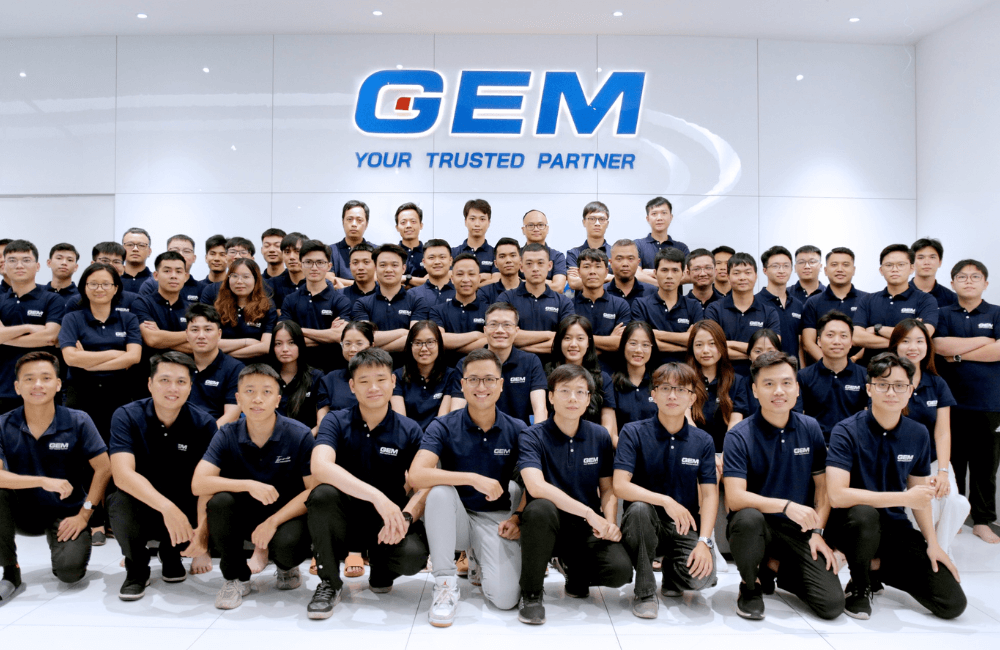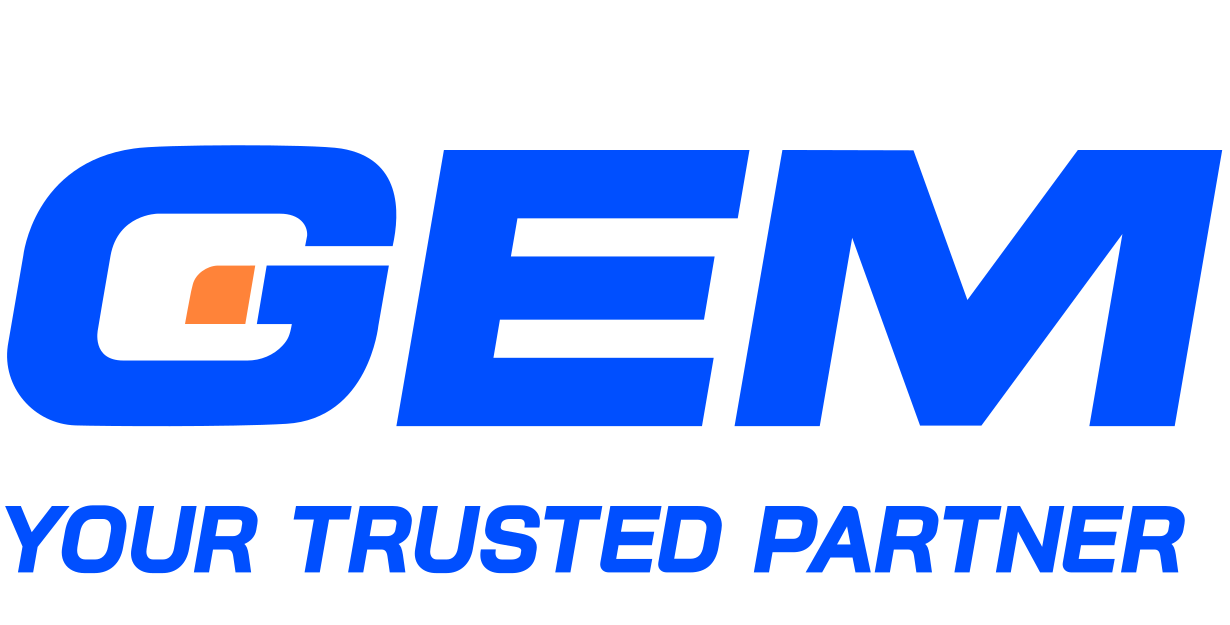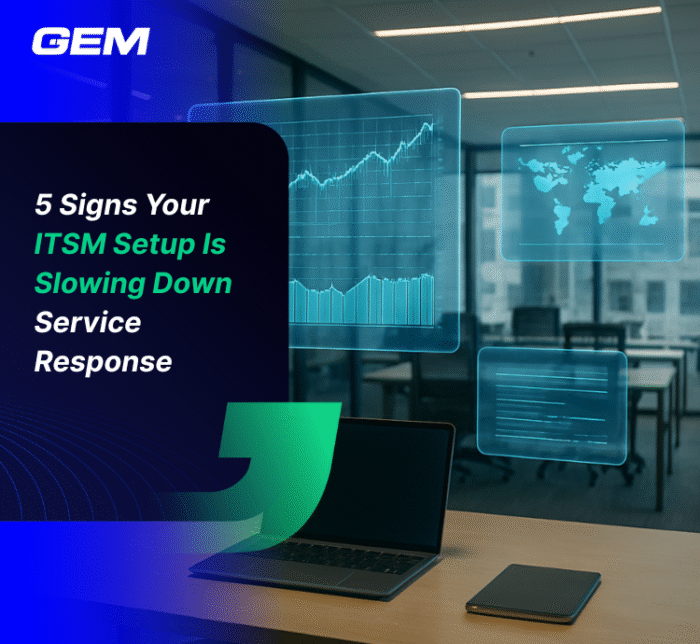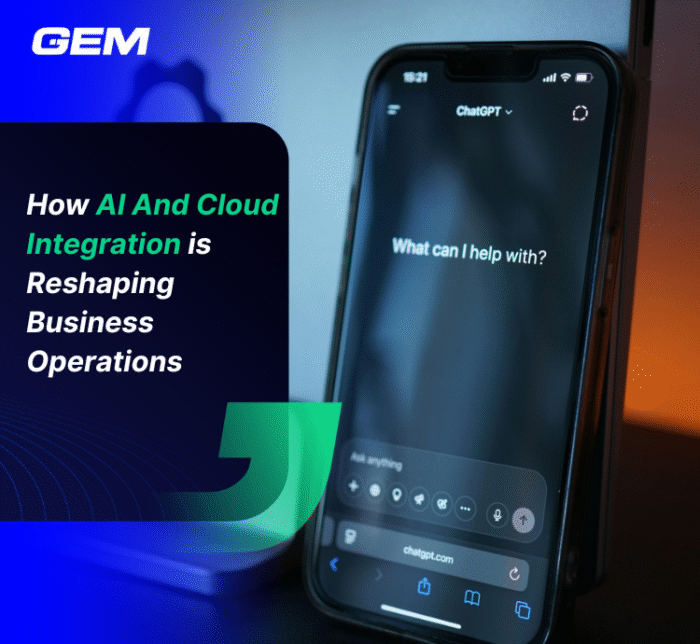Contents
- Japan’s IT Talent Market: Opportunity Meets Constraint
- What is an IT Recruitment Agency?
- When and Why Companies Turn to Recruitment Partners
- Best IT Recruitment Agencies in Japan
- The Vietnam Alternative: Talent Depth Meets Global Readiness
- Vietnam vs Japan: Strategic Talent Sourcing, Not Just Cost Arbitrage
- Choosing the Right Model: Local Recruitment vs Remote Teams
- GEM Corporation – A Trusted IT Services & Recruitment Partner in Japan and Vietnam
- Conclusion
Japan’s tech sector is growing fast, but hiring hasn’t kept up. The shortage of skilled professionals emerges as the dominant barrier to modernization, with over 70% of organizations reporting they are understaffed across key technological roles. That figure is 52% higher than in other regions. As a result, companies are turning to IT recruitment agencies in Japan to close talent gaps and accelerate hiring. This article looks at how these agencies operate, which ones stand out, and why Vietnam is becoming an increasingly strong alternative for sourcing qualified tech talent. Let’s take a closer look at what’s shaping the decision.
Japan’s IT Talent Market: Opportunity Meets Constraint

Japan’s IT labor market is under pressure. The country is facing a projected shortfall of over 450,000 IT engineers by 2030, driven by demographic shifts, rapid digitalization, and structural inefficiencies in hiring. Demand is rising across areas like cloud computing, AI, cybersecurity, and enterprise software, yet the supply of qualified professionals remains limited.
Several dynamics shape this landscape:
Severe Talent Shortage
The gap between demand and available talent continues to widen, especially in high-skill domains. Reskilling initiatives are underway, but scale and speed remain issues.
Digital Transformation Imperative
Enterprises are restructuring around digital infrastructure, creating new demand for architects, engineers, and data professionals who can support complex systems.
Aging Workforce & Low Birth Rate
Japan’s shrinking working-age population reduces the inflow of new tech workers each year, weakening the long-term sustainability of the talent pipeline.
Passive Job Market
Cultural norms around job stability mean many IT professionals aren’t actively seeking new roles, and traditional recruiting channels often fail to reach them.
Bilingual Leadership Gap
Multinational firms face a dual-language challenge. There is a limited pool of tech professionals who are both technically strong and fluent in English, slowing down cross-border team integration.
To respond, companies are investing in flexible hiring models, revising job requirements to include adjacent skillsets, and tapping international talent pools. But even with these shifts, competition remains high, making recruitment partnerships increasingly relevant.
What is an IT Recruitment Agency?

An IT recruitment agency is a firm that focuses on connecting businesses with qualified tech professionals to fill roles such as software engineers, systems architects, data analysts, and cybersecurity specialists. These agencies manage the hiring process end to end—sourcing, screening, and presenting candidates – drawing on their networks, market knowledge, and hiring infrastructure to reduce time-to-hire and improve match quality.
What IT Recruitment Agencies Do
- Source Candidates
Agencies tap into job boards, proprietary databases, tech communities, and referrals to surface both active and passive candidates.
- Screen and Vet
Through structured interviews, technical assessments, and background checks, agencies validate the candidate’s capabilities and alignment with role requirements.
- Present Shortlists
Hiring managers receive a focused list of qualified candidates, often with notes on strengths, availability, and compensation expectations, simplifying decision-making.
- Advise and Consult
Beyond talent sourcing, agencies offer insights into hiring trends, compensation benchmarks, and job design. Some also support employer branding efforts to attract higher-quality applicants.
This operational depth is especially valuable in tight labor markets like Japan’s, where access defines hiring success.
When and Why Companies Turn to Recruitment Partners

Recruitment agencies play a strategic role in Japan’s tech hiring market, where structural constraints and talent shortages leave many companies without the resources or reach to build teams at scale. The decision to engage external partners is often driven by four recurring challenges:
Local Talent Shortages
With a limited supply of experienced IT professionals, especially in areas like cloud infrastructure, AI, and security, companies often hit a hiring ceiling. Recruitment agencies help extend reach into passive talent pools and niche communities rarely accessible through standard job boards or in-house teams.
Language and Cultural Barriers
For foreign-affiliated firms or those expanding into Japan, navigating local expectations around communication, work culture, and hiring etiquette can slow momentum. Agencies with bilingual consultants and local market fluency bridge this gap, translating both language and intent.
Scaling Urgency
Startups, product teams, and enterprise IT departments often face tight timelines to deliver. When internal HR teams are stretched, recruitment firms can accelerate hiring by providing pre-vetted candidates and market-tested processes.
Niche Skill Requirements
Whether hiring for a DevOps engineer with Kubernetes experience or a cybersecurity lead with bilingual proficiency, specialized roles require targeted search strategies. Agencies tuned into vertical talent pipelines are better positioned to deliver shortlists that match on both skill and culture.
As hiring becomes more complex, agencies function as embedded advisors, helping companies define roles, align offers to market trends, and compete for limited talent with sharper positioning.
Best IT Recruitment Agencies in Japan

A number of firms stand out in Japan’s IT recruitment ecosystem, each with a differentiated approach based on scale, specialization, and market experience. Here’s a look at five of the most established players in the market:
Robert Walters Japan
With operations in Tokyo and Osaka, Robert Walters brings a consultative, quality-first approach to professional recruitment. The firm focuses on mid to senior-level bilingual talent across permanent and contract roles. Known for its deep client engagement and advisory lens, Robert Walters is particularly strong in serving multinational corporations and tech-driven enterprises looking for talent aligned with both global standards and local knowledge.
Hays Japan
Part of a global workforce solutions group, Hays offers end-to-end recruitment services across permanent, temporary, and contract roles. The firm is widely recognized for its scale, market intelligence, and ability to support enterprise clients seeking volume hiring or managed services. In Japan, Hays has built strong capabilities across IT, finance, and engineering sectors, offering tailored insights into hiring trends and compensation.
JAC Recruitment
Headquartered in Tokyo and operating across Asia and Europe, JAC is one of the largest permanent placement agencies in Japan. Their consultants specialize by industry and seniority level, with a particular focus on managerial and above roles. JAC’s strength lies in its local presence, multilingual teams, and ability to support both global firms hiring in Japan and Japanese companies expanding overseas.
Adecco Japan
Adecco is positioned as a full-spectrum HR solutions provider, offering staffing, recruitment, workforce development, and career support. With a global footprint and partnerships across industries, Adecco connects over 700,000 people to jobs daily. In Japan, the firm supports both large enterprises and growth-stage companies, offering speed and operational breadth in matching candidates to emerging tech roles.
Pasona Group Inc.
A long-standing player in Japan’s HR ecosystem, Pasona brings a global perspective to hiring through its network of 55 offices in 15 countries. The firm supports Japanese companies with international operations as well as foreign companies entering the Japanese market. Pasona’s strength lies in global mobility, multilingual recruitment, and its dedicated initiatives to support non-Japanese professionals navigating the domestic job market.
The Vietnam Alternative: Talent Depth Meets Global Readiness

Vietnam is increasingly gaining traction as a regional talent hub for tech hiring. While Japan continues to face structural labor shortages, Vietnam offers a younger, digitally inclined workforce with growing exposure to global engineering standards. For companies seeking to expand their talent strategy, four factors make Vietnam a strong consideration:
Strong Technical Education Pipeline
Vietnam produces over 50,000 IT graduates annually, with universities placing increasing emphasis on practical skills in software engineering, data science, and AI. Many programs are aligned with international curricula or supported by partnerships with global tech firms.
High English Proficiency
Vietnam ranks 58th out of 113 countries in the EF English Proficiency Index, placing it ahead of Japan (87th). Young professionals, especially those in tech roles, tend to have stronger written and spoken English skills, an advantage for teams operating in cross-border environments.
Outsourcing Maturity
Vietnam has over 1,000 IT outsourcing firms, serving clients in the U.S., Europe, and Asia. Cities like Ho Chi Minh City and Hanoi have established outsourcing clusters with infrastructure, vendor ecosystems, and talent geared toward agile delivery and offshore collaboration.
Time Zone Proximity to Japan
Vietnam operates just two hours behind Japan Standard Time (JST), which allows for real-time collaboration without the communication delays associated with offshore hubs in other regions. This overlap supports agile workflows and faster decision cycles.
For Japanese firms and multinationals operating in APAC, Vietnam provides access to scalable talent while maintaining operational alignment with regional headquarters.
Vietnam vs Japan: Strategic Talent Sourcing, Not Just Cost Arbitrage

The decision to hire in Vietnam or Japan is about long-term access to talent, speed of execution, and operational scalability. Each market offers distinct advantages and constraints depending on your hiring goals, organizational maturity, and team structure.
Talent Availability & Skill Sets
Japan has a strong base of experienced IT professionals, particularly in enterprise systems and engineering leadership. But the supply is limited, especially for emerging technologies. Vietnam, on the other hand, offers a growing pipeline of developers, QA engineers, DevOps specialists, and data professionals. While the average years of experience may be lower, Vietnam’s professionals are often trained in global frameworks, open-source stacks, and cloud-native environments. For companies willing to invest in onboarding and training, the talent depth is scalable.
Hiring Speed
In Japan, the hiring lifecycle is protracted. Companies often face delays due to long notice periods (typically one to three months), multi-stage interviews, and candidate hesitancy. In Vietnam, hiring cycles are shorter. Offers are accepted more quickly, and candidates are usually available to start within four weeks. This makes Vietnam a viable option for time-sensitive product launches or team expansions.
Retention & Turnover
Japan is known for long employee tenure, but this is often tied to traditional career expectations and limited mobility. In contrast, Vietnam has a more dynamic talent landscape. Junior-level turnover can be high, particularly in outsourcing firms. But mid-to-senior professionals tend to stay longer with companies that offer career paths, technical mentorship, and competitive compensation structures. Retention in Vietnam improves significantly when companies invest in local leadership and professional development.
Employer Branding Expectations
In Japan, corporate stability, name recognition, and compliance with work norms play a major role in attracting candidates. Employer branding is formal and reputation-driven. In Vietnam, candidates are more responsive to narratives around impact, team culture, technology stack, and growth opportunities. Developer communities, tech events, and referrals are important channels for building trust with the workforce.
Legal & Payroll Complexity
Japan has rigid labor laws, with structured benefits, termination protections, and mandatory employee rights. Payroll and HR administration require local infrastructure and regulatory familiarity. Vietnam’s legal environment is more flexible, but still requires careful navigation. Many companies use Employer of Record (EOR) services to manage compliance, taxation, and benefits, especially during the early stages of market entry.
Comparative Snapshot: Vietnam vs Japan for IT Talent Sourcing
| Category | Japan | Vietnam |
| Talent Availability | Limited supply, especially in emerging tech | Expanding pool, accessible across roles |
| Average Time-to-Hire | 12–16 weeks | 4–6 weeks |
| Tech Stack Experience | Enterprise-heavy (Java, .NET, SAP) | Modern stack (Node.js, React, Python, AWS) |
| English Proficiency | Low to moderate | Moderate to high (especially under 35) |
| Retention Trends | High tenure, low mobility | Moderate turnover, improves with engagement |
| Employer Branding Drivers | Stability, brand recognition | Stack, culture, growth story |
| Legal/Compliance Complexity | High (strict labor regulation) | Medium (flexible but requires local insight) |
| Payroll Model | Direct employment preferred | EOR or local partner widely used |
| Time Zone Alignment | Domestic | GMT+7 (2-hour difference from JST) |
| Cost Efficiency | High cost per hire | Lower cost per hire |
Choosing the Right Model: Local Recruitment vs Remote Teams

The decision between hiring local talent in Japan or building remote teams offshore hinges on a company’s delivery model, timeline, and operational priorities.
For businesses that require deep market understanding, client-facing roles, or bilingual project leads, building teams in Japan often with the support of local recruitment agencies is a strong fit. This model works well for organizations with long-term market commitments or those navigating regulated industries.
Remote development teams or offshore delivery models become more relevant when speed, scalability, and cost control are primary concerns. These teams often support back-end development, QA, and infrastructure projects, and can be set up through direct hiring, outsourcing, or partnerships.
Hybrid hiring models are also gaining traction. Companies maintain a lean presence in Japan for strategy and client operations, while core development is handled offshore, frequently in markets like Vietnam. This blend offers both proximity to the business and flexibility in execution, without overextending internal resources.
GEM Corporation – A Trusted IT Services & Recruitment Partner in Japan and Vietnam

GEM Corporation is a global IT service provider and consultancy with offices in both Japan and Vietnam. Since 2014, we’ve delivered over 300 projects across 10+ countries, supporting clients through digital strategy, custom software development, and enterprise modernization.
Our presence in Japan gives us firsthand knowledge of the local tech market and hiring ecosystem, while our Vietnam operations provide access to a deep, scalable engineering talent pool. GEM offers tailored IT recruitment services, remote development teams, and hybrid delivery models built on a strong foundation of technical expertise and cross-border project experience.
With more than 400 engineers and consultants, we support clients in building both local and distributed tech teams that align with business goals, timelines, and budgets.
Conclusion
Japan’s tech hiring landscape is shaped by a tightening labor market, long hiring cycles, and shifting workforce expectations. While partnering with an IT recruitment agency in Japan remains a practical path for accessing local talent, Vietnam offers a parallel route with faster hiring speed, scalable engineering teams, and growing alignment with global delivery standards. Companies are increasingly adopting hybrid models to balance proximity and flexibility. GEM operates in both markets, combining local insight with regional reach to support teams across every stage of growth.
To explore tailored hiring strategies across Japan and Vietnam, contact GEM today.






